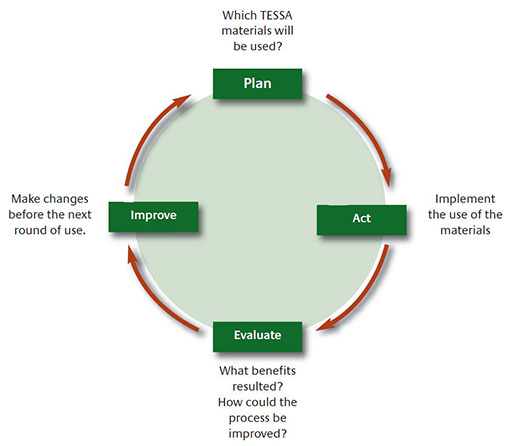7 How can you evaluate and improve your use of the TESSA materials? [Reflective Practice]
When something new is tried out, it’s important to get feedback, to answer the question ‘What have I/we learned from using the TESSA materials with the teachers I/we work with?’
You can think about the experience on your own, but if you work with colleagues or people in the school community, you could also get feedback from them.
TESSA Snapshot
The ‘TESSA Feedback Tool’ was used to get feedback from Social Studies lecturers at Kyambogo University who used a series of TESSA activities with their student teachers. Notice particularly the question:
The answers given to this question will help the Kyambogo coordinator in planning for future sessions in which TESSA activities are integrated. |
You could also ask your teachers/student teachers directly for their feedback. This could be in a survey questionnaire or less formally in a focus group discussion – a discussion guided by the broad questions such as:
- What was good?
- What was not so good?
- What improvements could be made?
In formal structured courses in which teachers are assessed, the effectiveness of the TESSA approach could also be evaluated through teachers’ assignments, or even through testing of teachers’ competences.
TESSA Snapshot
Teachers doing the B Ed at the Open University of Sudan are asked to practise fourteen key teaching strategies embodied and illustrated in the TESSA materials. Their teaching practice supervisors assess their competence in using these strategies effectively. |
However, evaluation is only useful if the results of evaluation are used – the important question for the curriculum planning or TESSA implementation committees is: How can we do things better next time round? Figure 3 illustrates how you can use evaluation effectively.

Figure 3 Using evaluation effectively
6 How can you encourage reflective practice with TESSA activities through the kinds of assessment you use? [Assessment]



